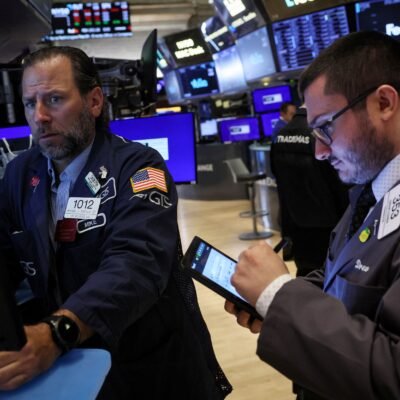In This Story
Intel (INTC) is bringing in reinforcements as it lags in the artificial intelligence chipmaking race.
The Santa Clara, California-based semiconductor giant has hired Morgan Stanley and other advisors to help fend off activist investors, CNBC reports, citing unnamed sources familiar with the matter. While no sharks have been circling the company just yet, Intel (INTC) is reportedly trying to get ahead of potential interest.
The move comes as Intel, which was once a leading manufacturer of chips, has lost 57% in market value year-to-date, trading at $20.54 at market close Friday. The chipmaker has struggled to keep up with growing AI demand, and the rapid pace of evolution in the chips industry.
That has caused it to fall behind competitors, including Nvidia (NVDA), whose market capitalization exceeds $3 trillion (compared with Intel’s roughly $88 billion). It has also lagged well behind smaller rivals, such as Advanced Micro Devices (AMD), Broadcom (AVGO), Qualcomm (QCOM), and Texas Instruments (TXN).
Read more: How activist investor Elliot became the shark that transforms giants like Starbucks and Southwest
Intel missed profit and revenue expectations last quarter. CEO Pat Gelsinger blamed the weaker-than-expected results partly on Intel’s decision to “more quickly ramp” its Core Ultra artificial intelligence CPUs, or core processing units, that can handle AI applications. The chipmaker set third-quarter revenue expectations at between $12.5 billion and $13.5 billion.
As of the end of June, Intel had cash and cash equivalents of $11.3 billion and total liabilities of $32 billion. Last quarter, the chipmaker also dumped its stake in British semiconductor firm Arm Holdings, a move that potentially brought in $147 million as Intel seeks to shed excess costs.
But it’s looking to mount a turnaround. Earlier this month, Intel announced that it would embark on a plan to save $10 billion in 2025. That includes reducing its headcount by roughly 15,000 roles, or 15% of its workforce, as well as suspending its stock dividend and reducing capital expenditures by more than 20%.
Gelsinger said at the time that these were the “most consequential changes” in the company’s history.





